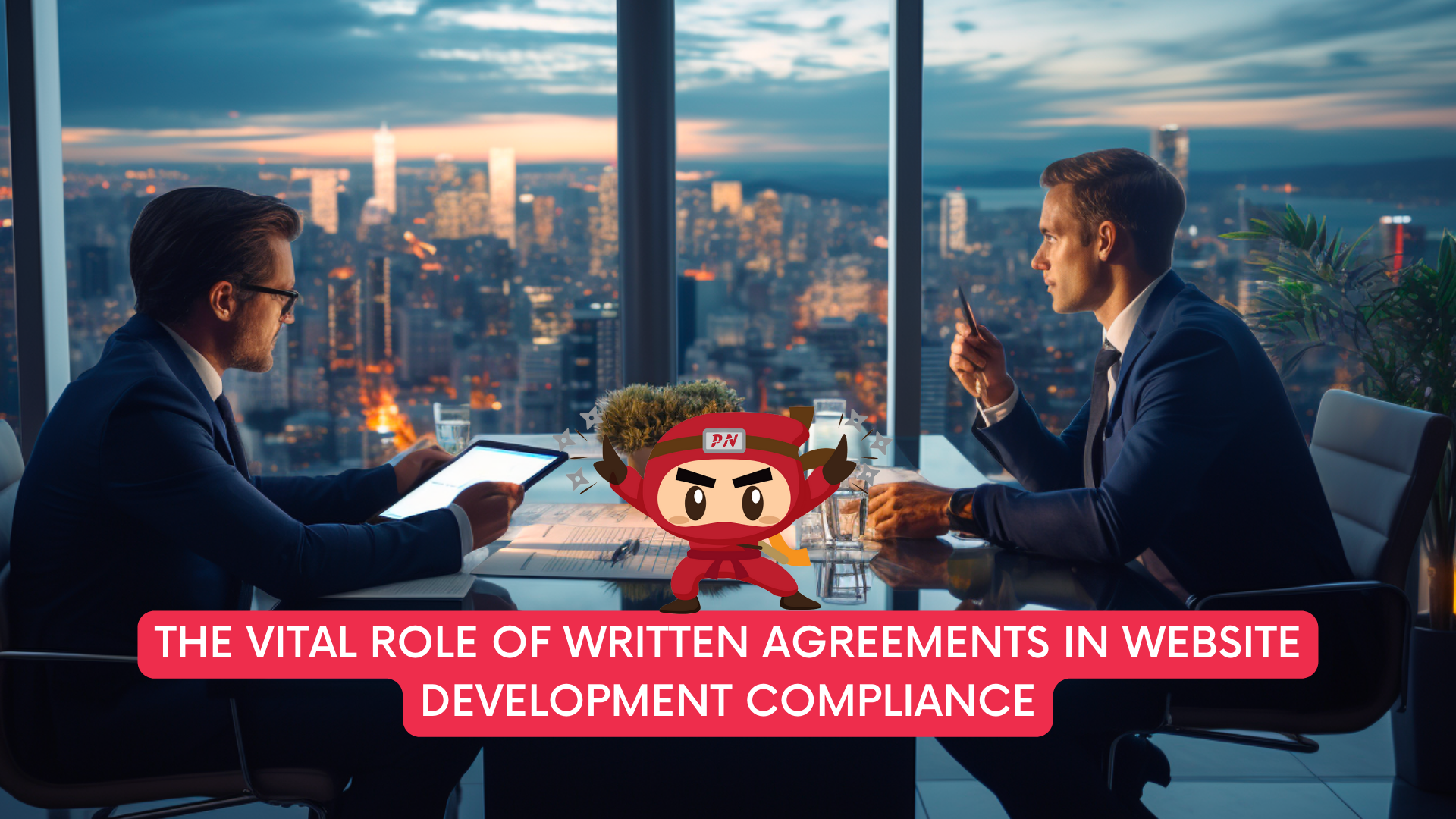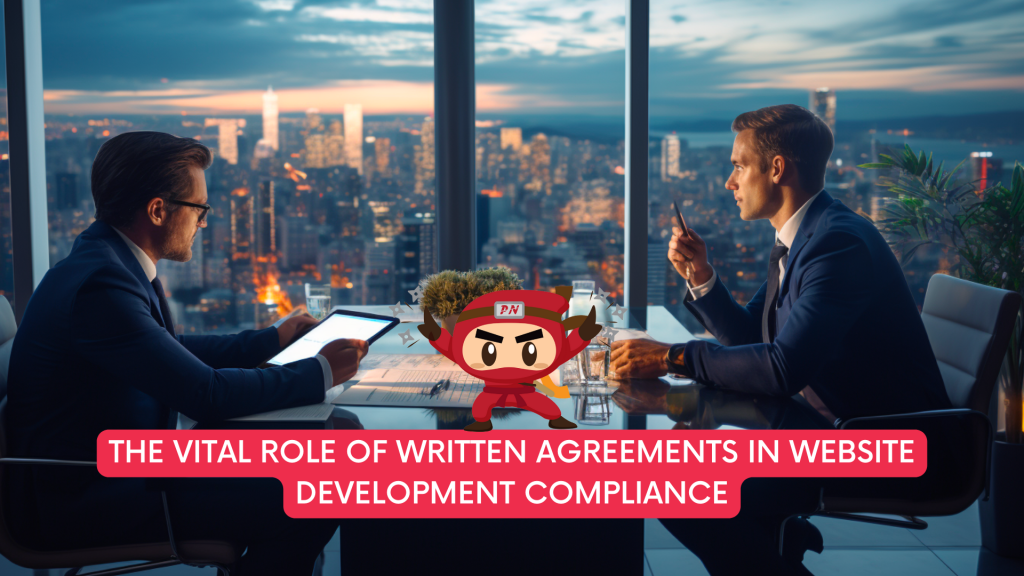KEEP IN TOUCH
Subscribe to our mailing list to get free tips on Data Protection and Cybersecurity updates weekly!







Entrusting a vendor with your website’s development is a strategic decision that comes with legal obligations. As mandated by the Personal Data Protection Commission (PDPC), it is imperative that organizations establish a written agreement with their chosen vendor, explicitly outlining responsibilities for ensuring the safety and security of personal data.
In this article, we explore the significance of such agreements in navigating data protection and fostering a secure online environment.
The Personal Data Protection Commission, in its commitment to safeguarding individual privacy and data security, mandates that organizations engaging vendors for website development establish a written agreement.
This agreement serves as a legal framework that outlines the vendor’s responsibilities and obligations concerning the protection of personal data.

The written agreement with a website development vendor should be comprehensive, clearly defining the roles and responsibilities of both parties in ensuring the safety of personal data. This includes specifying how personal data will be handled, processed, and protected throughout the development lifecycle and beyond.
Key components of these responsibilities may include:
Beyond legal compliance, written agreements with website development vendors play a crucial role in upholding trust between the organization and its clientele. Customers entrust organizations with their personal data, and a transparent agreement with vendors demonstrates a commitment to protecting this sensitive information.
Moreover, these agreements create a shared understanding of the importance of data protection, fostering a collaborative effort between the organization and the vendor in mitigating risks and ensuring compliance. Establishing a culture of shared responsibility strengthens the overall cybersecurity posture of the digital ecosystem.
In the dynamic and interconnected digital landscape, the risks associated with data breaches and cyber threats are ever-present. A written agreement with a website development vendor serves as a risk mitigation strategy by clearly defining accountability.
By specifying the security measures and protocols to be implemented, organizations can hold vendors accountable for the protection of personal data. This accountability is not only a legal necessity but also a proactive step in preventing potential reputational damage and financial repercussions associated with data breaches.
The development of a website is not a one-time event but an ongoing process. As technologies evolve and regulations change, the collaboration between organizations and their development vendors becomes paramount for maintaining continuous compliance with data protection laws.
A well-crafted written agreement should also include provisions for periodic reviews and updates to ensure that the security measures and protocols remain aligned with the latest industry standards and regulatory requirements. This collaborative approach fosters a dynamic and adaptive cybersecurity strategy.

In conclusion, when engaging a vendor for the development of your website, the creation of a written agreement is not just a legal mandate but a strategic step in building a secure digital foundation. The agreement establishes a framework for data protection responsibilities, upholds trust, mitigates risks, and ensures ongoing compliance with evolving regulations.
As organizations navigate the complexities of the digital landscape, the partnership with website development vendors becomes a critical aspect of their cybersecurity strategy. By fostering a collaborative and transparent relationship through written agreements, organizations can confidently embark on their digital ventures, knowing that the safety and security of personal data are prioritized and protected at every step.
Your appointed DPO can work with you on your PDPA compliance, ensuring that there will be policies in place to make sure that the handling of personal data is PDPA compliant.
A Data Protection Officer (DPO) oversees data protection responsibilities and ensures that organisations comply with the Personal Data Protection Act (PDPA). Furthermore, every Organisation’s DPO should be able to curb any instances of PDPA noncompliance as it is the officer responsible for maintaining the positive posture of an organisation’s cybersecurity.
DPOs complement organisations’ efforts to ensure that the organisation’s methods of collecting personal data comply with the PDPA. It also ensures that policies are set in place to make sure that there will be no instances of data breaches in the future.
Don’t wait any longer to ensure your organisation is PDPA compliant. Take our free 3-minute PDPA Compliance Self-audit checklist now, the same “secret weapon” used by our clients to keep them on track. Upon completion, we will send you the results so you can take the necessary action to protect your customers’ data. Complete the free assessment checklist today and take the first step towards protecting your customers’ personal data.